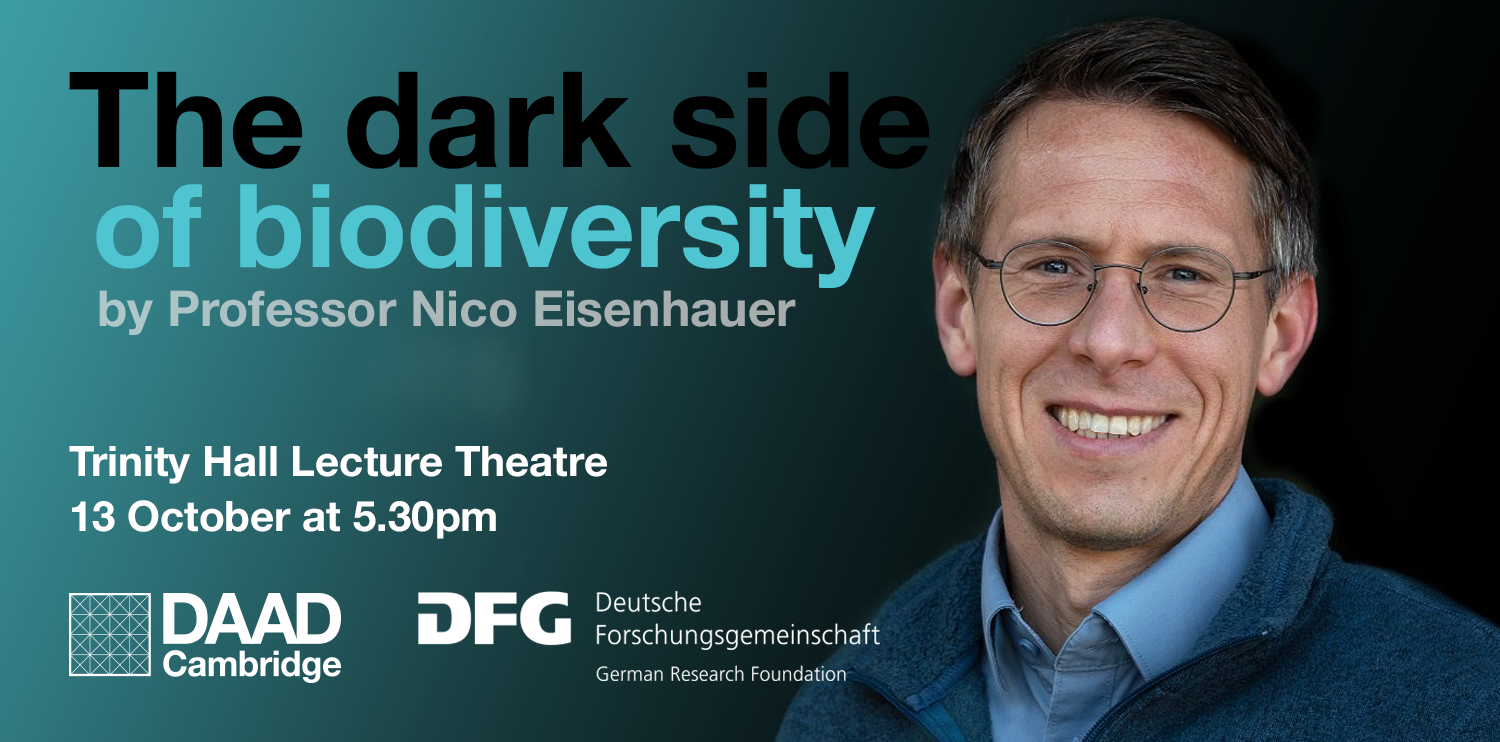
The DAAD-University of Cambridge Research Hub for German Studies is proud to present the third in an annual series of lectures in conjunction with the Deutsche Forschungsgemeinschaft (DFG, German Research Foundation) presenting the work of their Leibniz Prize winners. The Leibniz Prizes are the highest distinction in German academic life, and we are delighted to welcome Professor Nico Eisenhauer to give a lecture in this series.
Professor Nico Eisenhauer
‘The dark side of biodiversity’
13 October, 5.30pm, in the Lecture Theatre at Trinity Hall.
Environmental change is altering the composition and functioning of the earth’s ecosystems. Professor Eisenhauer’s team aims to embrace the complexity of terrestrial ecosystems by considering interactions among organisms above and below the ground as well as within and across trophic levels. They study the global distribution and drivers of (soil) biodiversity, global change effects on biodiversity, and the ecosystem consequences of biodiversity change. They combine global observational studies with experiments and data syntheses and specifically focus on the “dark side of biodiversity”, given the enormous biodiversity and functional significance of soils. Professor Eisenhauer’s lecture will focus on these questions: how does environmental change affect the composition and biodiversity of ecosystems? How are shifts in community composition and biodiversity related to the functioning and service provisioning of ecosystems?
Professor Eisenhauer is a German biologist, soil ecologist and professor for experimental interaction ecology at Leipzig University. He obtained his diploma in animal ecology at the Darmstadt University of Technology in 2005, and was then awarded a doctorate in 2008 from Darmstadt University of Technology. Postdoc work was carried out in the Jena Experiment at the Darmstadt University of Technology, the Georg August University Göttingen, the University of Minnesota and at the Technical University of Munich. He then habilitated at the Georg August University Göttingen in Ecology and Zoology. From 2012 he worked as Associate Professor for Terrestrial Ecology at the Friedrich Schiller University Jena. Since 2014 he has been a Full Professor for Experimental Interaction Ecology at the German Centre for Integrative Biodiversity Research (iDiv) Halle-Jena-Leipzig and Leipzig University.
Introductory remarks will be made by the DAAD Hub’s Director, Professor Chris Young, the DFG’s Head of International Affairs, Dr. Jörg Schneider, and the Head of Scientific Relations at the German Embassy in London, Andrea Noske. There will be an opportunity to ask questions at the end of the lecture. We would be delighted if you could join us for what promises to be a very informative occasion.
This in-person event will take place at 5.30pm on 13 October in the Lecture Theatre at Trinity Hall (Trinity Lane, Cambridge, CB2 1TJ), followed by a drinks reception in Trinity Hall’s Terrace Room.
Please register for the event via Eventbrite
The DFG is the central self-governing research funding organisation in Germany. The DFG serves the sciences and humanities and promotes research of the highest quality in all its forms and disciplines at universities and non-university research institutions. The focus is on funding projects developed by the academic community itself in the area of knowledge-driven research. The DFG endows various research prizes, including the Gottfried Wilhelm Leibniz Prize
